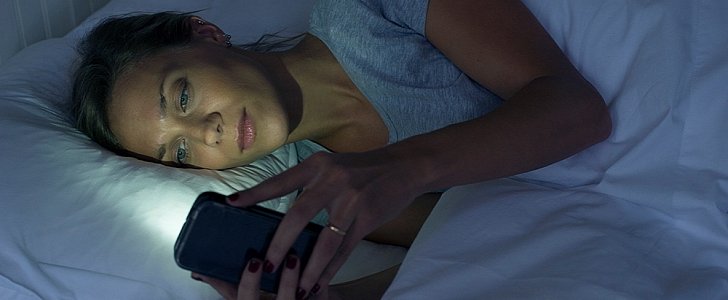Technological advances are meant to make us stay connected at all times and all the time. While that in itself isn’t a bad thing, the way it translates into stress for our bodies is.
The body eliminates stress and processes information acquired through the day through sleep. Because of the modern advances in technology (mobile phones, connected devices and social media, in particular), our bodies may need more than the 8 hours of recommended sleep at night, it has emerged.
At least, that’s what Pennsylvania State University professor, study author and sleep expert Dr. Daniel Gartenberg believes. Until just recently, most recommendations said that we need to sleep between 7 and 8 hours at night, with the ideal being of 8 hours. You might also know it as “beauty sleep,” though it has very little to do with beauty and more with the ways our bodies recover from daily activities.
Now that we’re surrounded by technology, which we even take with us into bed, the amount of stress has increased. To put it simply, our brains need an extra half an hour of sleep at night to decompress. That, of course, means spending more than 8.5 hours in bed, to include the time needed to actually fall asleep, the Professor says, as cited by the Daily Mail.
“With cell phones and social media, our brains are always a little on; our fight or flight response is always just a little bit activated, so there's this low level anxiety that you may not even notice, but it's there and you have to train yourself out of it,” Dr. Gartenberg explains.
There is a silver lining to this, though: technological advances will allow scientists a better look into how sleep helps us, thus paving the way to creating the perfect environment for it.
“Technological devices are hurting us, but we are also coming to a point where some of these wearable techs can be used to accurately measure sleep completely non-invasively and [those can be] integrated into smart home environments to create what we call ‘sleep habitats’,” the Professor explains.
Dr. Gartenberg says the key to a healthy sleep is a good nightly routine and making sure we eliminate potential noises that could affect the quality of the sleep. Oh, and make sure you don’t spend too much time on your smartphone while in bed, as it’s been known to make you more alert and more tired.
At least, that’s what Pennsylvania State University professor, study author and sleep expert Dr. Daniel Gartenberg believes. Until just recently, most recommendations said that we need to sleep between 7 and 8 hours at night, with the ideal being of 8 hours. You might also know it as “beauty sleep,” though it has very little to do with beauty and more with the ways our bodies recover from daily activities.
Now that we’re surrounded by technology, which we even take with us into bed, the amount of stress has increased. To put it simply, our brains need an extra half an hour of sleep at night to decompress. That, of course, means spending more than 8.5 hours in bed, to include the time needed to actually fall asleep, the Professor says, as cited by the Daily Mail.
“With cell phones and social media, our brains are always a little on; our fight or flight response is always just a little bit activated, so there's this low level anxiety that you may not even notice, but it's there and you have to train yourself out of it,” Dr. Gartenberg explains.
There is a silver lining to this, though: technological advances will allow scientists a better look into how sleep helps us, thus paving the way to creating the perfect environment for it.
“Technological devices are hurting us, but we are also coming to a point where some of these wearable techs can be used to accurately measure sleep completely non-invasively and [those can be] integrated into smart home environments to create what we call ‘sleep habitats’,” the Professor explains.
Dr. Gartenberg says the key to a healthy sleep is a good nightly routine and making sure we eliminate potential noises that could affect the quality of the sleep. Oh, and make sure you don’t spend too much time on your smartphone while in bed, as it’s been known to make you more alert and more tired.






